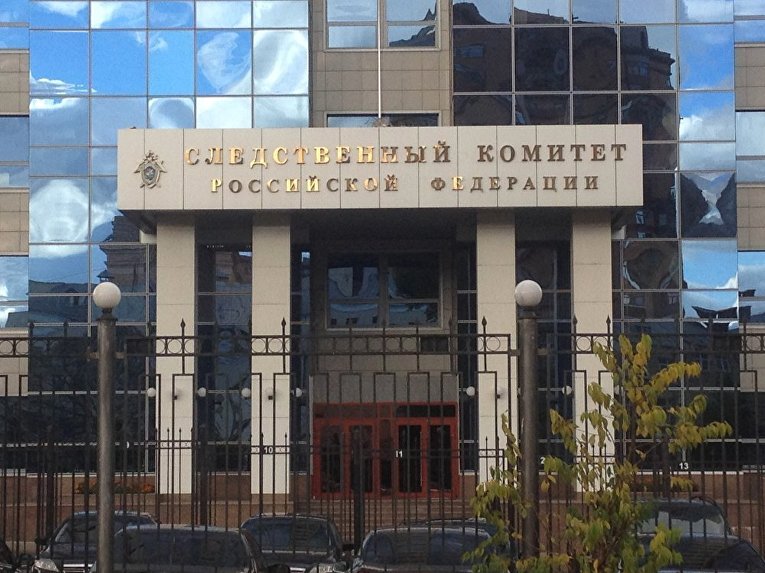MOSCOW, April 21 (RAPSI) – Russia’s Investigative Committee and Prosecutor General’s Office have registered applications concerning falsification of the examination in a case of the Federal Security Service’s (FSB) colonel Kirill Cherkalin.
The complaints were filed by attorneys from Egorov, Puginsky, Afanasiev & Partners. Defense lawyers demand to check investigators’ actions for several crimes including tampering with evidence and results of law enforcement intelligence operations (Article 303 of the Russian Criminal Code), abuse of power (Article 285), illegal institution of a criminal case (Article 299, Part 3), accessory in money laundering (Article 33, Part 5 and Article 174.1).
Disputed forensic examination
There are three counts in the Cherkalin case. The first count is 12 billion rubles (about $160 million) found in his flat. The second episode is a bribe of $850,000 for the operations of Transportny Bank. Thirdly, the story with the price of 49% of the minority stake in the company Yurpromconsulting, which the FSB officers, including Cherkalin himself, allegedly advised the owner of its 49% stake to sell it to the owner of the control stake in order to relieve itself of responsibility for a loan repayment. It would allow to the the bank lender of the overdue loan in the amount of almost 2 billion rubles ,to independently deal with the city, as loan could not be repayed in full and the question was who would compensate this damage to the bank.
The disputed examination is related to the Yurpromconsulting count.
According to peer-reviewer and forensic expert accredited to several Russian courts Petr Leonov, who has been brought by defense to bear appropriate expertise, state expert organizations refused to conduct examination in Cherkalin’s case. Finally, it was carried out on December 8, 2011, allegedly for the deal’s date. However, the bargain date was misdefined. The proper date is November 29, 2011, proved by notarial contract, Leonov noted.
Expert Sergey Romanov conducting the enquiry has no required professional qualification in business appraise, Leonov states. Thus, none of the experts involved by investigators never appraised companies, businesses, stakes and shares, he added.
Taking into account the fact that experts did not have available tax or accounting reports, they could not give an answer to the share market value question that is the obligatory requirement of the federal appraisal standards. They also had no credit agreement with the outstanding balance of 1.9 billion rubles (about $60 million on the sale date) and several other important documents, Leonov explained.
Moreover, the examination presumes that a project reversed by Moscow’s Mayor Office in 2009 is not actually stopped and actively running; and Yurpromconsulting accommodates resources for its execution. However, according to Leonov, that is not so. The project involving the company was terminated long before the 49% sale happen. Yurpromconsulting, the expert states, failed to pay up the second part of investment contribution to the city of Moscow about $27 million in ruble equivalent and taking into consideration the huge 1.9 billion-ruble loan with collateralized 100% of its shares and 100% of investment rights under the co-investing agreement with the city, the company could be recognized as unbankable. This fact was recorded in many administrative documents of Moscow’s government and court rulings, the reviewer explained.
He pointed that the investment project as part of which Yurpromconsulting co-invested in the construction in one of Moscow’s districts was not fully realized due to the ex parte rejection of the city to execute the co-investing contract. Therefore, only 5 of 23 blocks were built.
As on the appraisal date, the project was discontinued by the Moscow government’s decisions and even the company’s lawsuit over the co-investment agreement’s dissolution and recovery of losses was pending in the Moscow Commercial Court within a year. However, despite publicly available documents and facts the expert misrepresents that this investment contract between Yurpromconsulting and Moscow is ongoing.
Leonov claims this is obviously an arithmetic error. The company’s 2 billion-ruble debt was not taken into account while calculating but it was to be deducted, he stated. Other experts and reviewers involved defense are of the same opinon, Leonov told RAPSI. The Justice Ministry’s Russian Federal Center of Forensic Science said a repeated forensic evaluation was necessary, he added.
According to the established practice, the cost of the company in such case is equated to 1 ruble. This means that no one suffered any damage from the sale of 49% of Yurpromconsulting at a nominal value of 4,900 rubles under a notarial paid transaction in December 2011.
The value of the company and any share in it was negative and is usually accepted by experts, investigators and courts for 1 ruble, the agency's informant believes.
As a result, there were so many mistakes that expert reviewers involved by the defense, including the conclusion of the Russian Federal Center of Forensic Science of Ministry of Justice , call the examination and its results misleading.
Cherkalin case
On April 20, a judge of the Moscow Garrison Military Court retired into chambers for the imposition of sentence. The sentencing is scheduled for April 22.
The case was heard under a special procedure, without examination of evidence and interrogation of witnesses, as the defendant had pleaded guilty in full and signed a deal with investigators.
Cherkalin also stands charged with receiving a bribe in the amount of $850,000 from a businessman for the common protection in the other episode.
According to the website of the financial crimes agency Rosfinmonitoring, Cherkalin represented FSB in the Interdepartmental Anti-money laundering Commission. Investigators believe that his illegal activity lasted from November 2013 to February 2015.
In November 2019, Moscow’s Golovinsky District Court forfeited to the state assets of Cherkalin and his family worth over 6 billion rubles (about $80 million at the current exchange rate), including four apartments, two cottages, six land plots with a total area of 7,116 square meters, 14 nonresidential premises, 2 cars, 800 million rubles, $72 million and over 8 million euros found during the investigative activities in Cherkalin’s premises.



